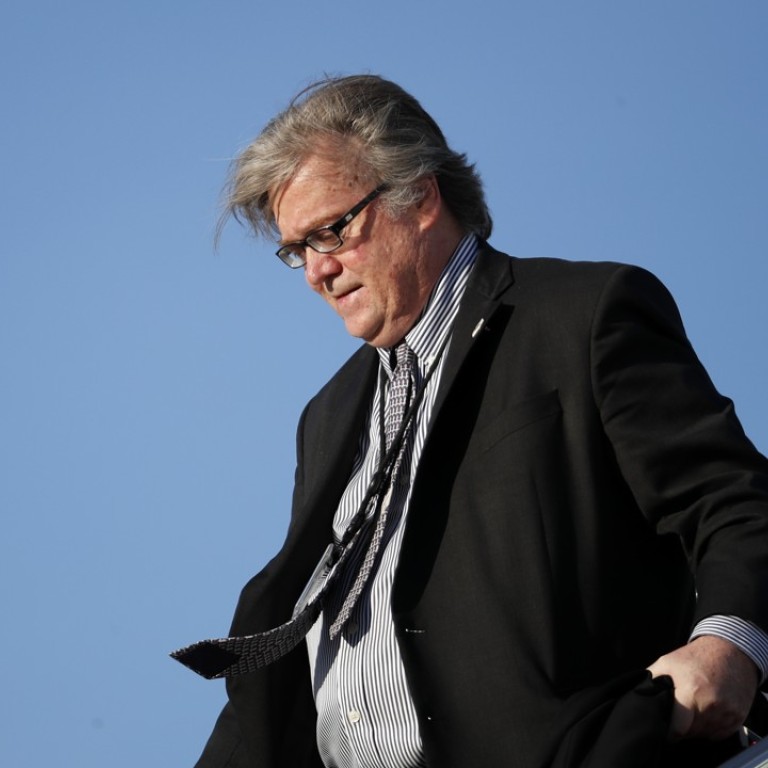Advertisement
Advertisement

Bannon may be gone, but tensions between the US and China will linger
The departure of the hawkish White House chief strategist is a chance to bring back thoughtful policymaking, but it is more likely the negative rhetoric will continue
The departure last week of Steve Bannon as chief White House strategist brought instant relief for those who believe the world’s two biggest economic powers, the United States and China, should work together and that globalisation is the best formula for growth and development. His nationalism and influence in President Donald Trump’s administration threatened that thinking, with discussion being of trade wars, conflict and isolationism rather than cooperation. The far-right rhetoric will not disappear now that he has gone and there can be no guarantee of prolonged calm. But with his views plainly out of step with other senior officials, there is at last a chance for thoughtful and consistent policymaking.
Bannon helped mastermind Trump’s election victory, his views that China was in large part the reason for working-class Americans’ difficulties contributing to tipping the political balance. Such rhetoric has been a feature of American electioneering in recent decades, but rather than dying down after the vote, Bannon ensured it remained front and centre of Trump’s agenda. Days before he left office, his tone remained tough, a US news website being told in an interview that Washington should be “maniacally focused” on an “economic war with China”, as a battle was under way between the two nations for domination of the global economy. As if to echo his warning, the administration went ahead last Friday with an investigation into claims that Chinese companies had stolen American intellectual property.
Trade between China and the US is not as balanced as it could be and worries are bound to arise amid great-power rivalry. But Bannon’s strategy of sowing fear during election campaigning through talk of a war between the US and China in the South China Sea and then by persistent allegations of Chinese trade malpractice and currency manipulation, understandably caused disquiet in Beijing. It has been tempered by the reasoned tones of Secretary of State Rex Tillerson, Defence Secretary James Mattis and National Security Adviser H.R. McMaster, who are usually united in their support of traditional American foreign policy goals. But the ousted chief strategist was by no means the only nationalist voice in Trump’s administration, and the negative rhetoric will continue.
Bannon has offered Trump dangerous and damaging advice, the decision to pull the US out of the Paris climate change accord being the most obvious. Long-term cooperation between China and the US has brought substantial benefits to the people of both nations. Taking a different tack through a trade war or strategic or military conflict will only cause harm, at home and globally.

Post
